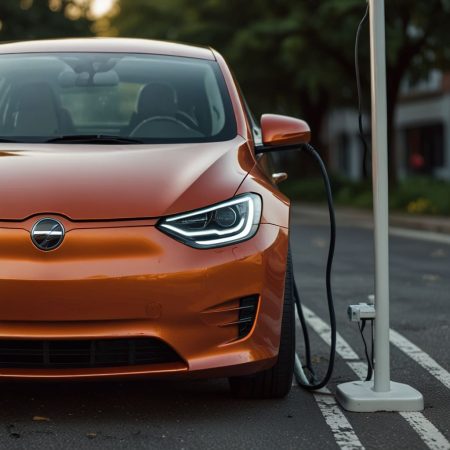For electric car enthusiasts, this is need-to-know key information. Electric cars (EVs) are poised to revolutionize the automotive industry. The question on everyone’s mind: Will all cars be electric by 2030? While it might seem bold to predict such a complete shift, there are compelling reasons to believe this transition will happen sooner than we think.
Tipping Point
Many industry experts believe we’ve already reached the tipping point where EV sales will rapidly surpass those of traditional petrol and diesel cars. Major car manufacturers are making significant commitments to electric mobility:
Jaguar plans to sell only electric cars from 2025.
Volvo aims for an all-electric lineup by 2030.
General Motors will produce only electric vehicles by 2035.
Ford plans to sell only electric vehicles in Europe by 2030.
Volkswagen aims for 70% of its sales to be electric by 2030.
Not Just a Fad
This shift isn’t mere greenwashing or a passing trend. Governments worldwide are setting targets to ban the sale of petrol and diesel vehicles, but the real driving force is technological innovation.
The Electric S-Curve
Think of the EV market as being at a similar stage to the internet in the late 1990s or early 2000s. Back then, the internet was exciting but seemed irrelevant to many. However, it exploded, disrupting existing businesses and changing our lives. This growth followed an S-curve pattern:
- Nerdy Beginnings: Initially, only tech enthusiasts were interested.
- Explosive Growth: Suddenly, the internet became essential for everyone.
The EV market is currently on the shallow slope of the S-curve. By 2025, 20% of all new cars sold globally will be electric, according to UBS. By 2030, that figure will leap to 40%, and by 2040, virtually every new car could be electric.
Realistic Transition
While not all cars will be electric by 2030, the transition will be well underway. Millions of electric cars will be on the roads, even though existing petrol and diesel cars won’t suddenly disappear. Banning sales is just the first step toward a cleaner, more sustainable future.
Powering the Future: Benefits of Electric Cars
We’ve talked about how electric cars are taking over, but what makes them so special? Here are some exciting reasons to get pumped about electric vehicles:
Breathe Easy: One of the biggest benefits is cleaner air. Electric cars don’t have tailpipes spewing out smoke, which means less air pollution, especially in busy cities. This can lead to healthier lungs and a fresher world to breathe in.
Green Machine: Electric cars are powered by electricity, which can come from renewable sources like wind and solar power. This means less reliance on fossil fuels and a smaller carbon footprint. It’s like giving the Earth a high five!
Silent Stroads: Gas cars can be noisy, especially in traffic. Electric cars, on the other hand, are much quieter. Imagine cruising down the road with just a peaceful hum – a big change for our ears!
Instant Power: Electric cars have something regular cars don’t – instant torque. That means they zoom off the line faster, giving you a smooth and exciting driving experience. It’s like having a mini-rocket strapped to your wheels!
Lower Running Costs: Electric cars are cheaper to fuel than gas guzzlers. Plus, they require less maintenance because electric motors have fewer moving parts. That means saving money at the charging station and the mechanic!
Smarter Cars: Electric cars are paving the way for a new generation of smart vehicles. Many electric cars come packed with high-tech features like self-driving capabilities and better connectivity. It’s like having a personal assistant on wheels!
Of course, there are still challenges:
- Charging Up: Finding charging stations can be tricky, especially on long trips. But new stations are popping up all the time, and battery range is constantly improving.
- Upfront Cost: Electric cars can be more expensive than gas cars upfront. But remember, the savings on fuel and maintenance add up over time. Plus, government incentives are making electric cars more affordable.
- The Grid: Lots of electric cars means more electricity is needed. We need to make sure our power grids can handle the extra load, but that’s an exciting challenge for the future!
The Bottom Line
Electric cars are the future of transportation. They’re cleaner, quieter, and packed with potential. While it might take a little longer than 2030 for all cars to be electric, the journey has begun. By choosing an electric car, you’re not just getting a cool ride, you’re making a positive impact on the world around you. So, are you ready to join the electric revolution?
In summary, the electric revolution is here, and by 2030, electric cars will play a significant role in shaping our transportation landscape. Buckle up for an electrifying ride!

